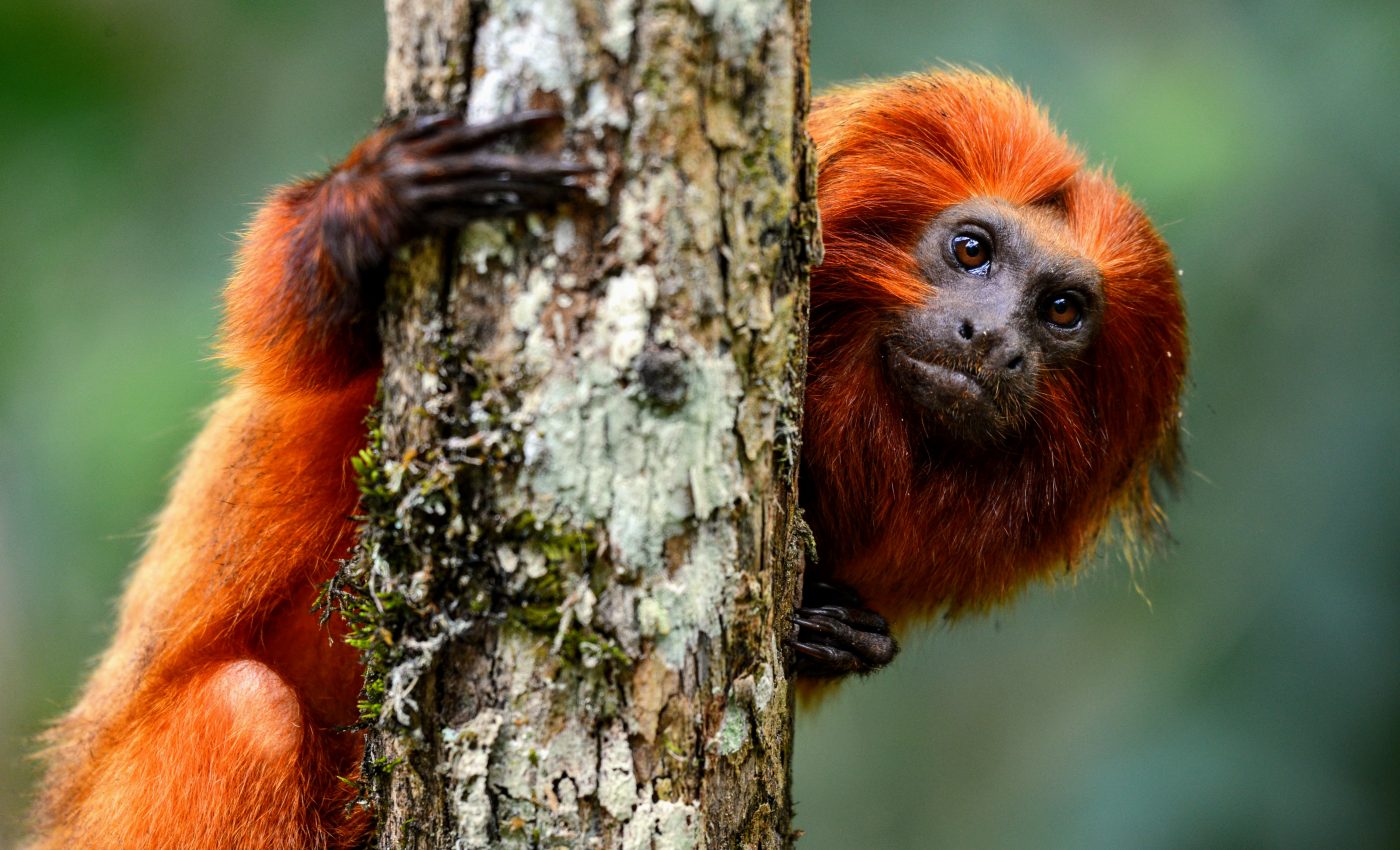
Tamarins change their accent in shared territory to avoid conflict
Some primates can change their accent to avoid conflict with other groups, according to a new study. The researchers investigated the behavior of 15 groups of tamarins in the Brazilian Amazon, and found that one species adopts the calls of another species to improve communication in shared territory.
Focused on pied tamarins and red-handed tamarins, the study is the first to identify this behavior in primates.
Pied tamarins are critically endangered and have one of the smallest ranges of any primate in the world, while red-handed tamarins are found throughout the northeastern Amazon.
The study revealed that when groups of red-handed tamarins enter shared territory, they adopt the long calls used by the pied tamarins. The experts believe this behavior is used to avoid territorial disputes over resources.
“When groups of tamarins are moving quickly around mature Amazonian forest it can sometimes be difficult to tell the species apart, but during our research we were surprised to discover they also sound the same in the areas of the forest they cohabit,” said study lead author Tainara Sobroza of the Instituto Nacional de Pesquisas da Amazonia.
“We found that only the red-handed tamarins change their calls to those of the pied tamarins, and this only happens in places where they occur together. Why their calls converge in this way is not certain, but it is possibly to help with identification when defending territory or competing over resources.”
Study co-author Dr. Jacob Dunn is an associate professor in Evolutionary Biology at Anglia Ruskin University (ARU).
“We have long known that when closely related species overlap in their geographic ranges, we are likely to see interesting evolutionary patterns. One famous example is the Galapagos finches, studied by Darwin, whose beaks evolved to specialise on different foods on the islands to avoid competition,” said Dr. Dunn.
“In some cases, rather than diverging to become more different from one another, some closely related species converge to show similar traits. Our study is the first to show asymmetric call convergence in primates, with one species’ call becoming the ‘lingua franca’ in shared territories.”
“Because these tamarin species rely on similar resources, changing their ‘accents’ in this way is likely to help these tiny primates identify one another more easily in dense forest and potentially avoid conflict.”
The study is published in the journal Behavioral Ecology and Sociobiology.
–—
By Chrissy Sexton, Earth.com Staff Writer













